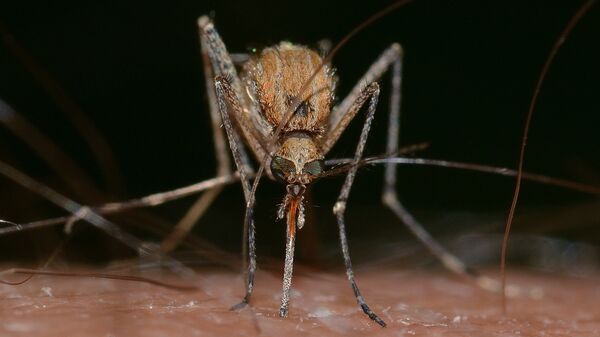A genetically modified strain of mosquitos that was introduced in Brazil years ago in an effort to combat the spread of mosquito-borne diseases has apparently managed to successfully interbreed with the local mosquito population despite being specifically designed to prevent such outcome, Yale News reports citing a new study conducted by researchers from Brazil and the United States.
According to the media outlet, a commercial company called Oxitec Ltd. released approximately 450,000 transgenic Aedes aegypti male mosquitos "containing a dominant lethal gene" over a period of 27 months, between 2013 and 2015, in the Brazilian city of Jacobina.
The experiment was aimed at reducing the risk of people contracting diseases such as Zika or yellow fever via this particular vector, as female mosquitos mating with the males from the modified strain were supposed to be unable to produce offspring.
However, a study of the mosquito specimens collected in the region has revealed that the genes from the transgenic strain continue to exist in some members of the local mosquito population.
"The claim was that genes from the release strain would not get into the general population because offspring would die. That obviously was not what happened," said Jeffrey Powell, professor of ecology and evolutionary biology, and senior author of the report.
He noted that while this "mixing" of the indigenous mosquitos and the modified strain apparently does not pose any "known health risk", "it is the unanticipated outcome that is concerning".
"Based largely on laboratory studies, one can predict what the likely outcome of the release of transgenic mosquitoes will be, but genetic studies of the sort we did should be done during and after such releases to determine if something different from the predicted occurred," Powell added.
The researchers also noticed that while the mosquito population in the region initially declined after the introduction of the modified males, it had rebounded about 18 months after the experiment.




